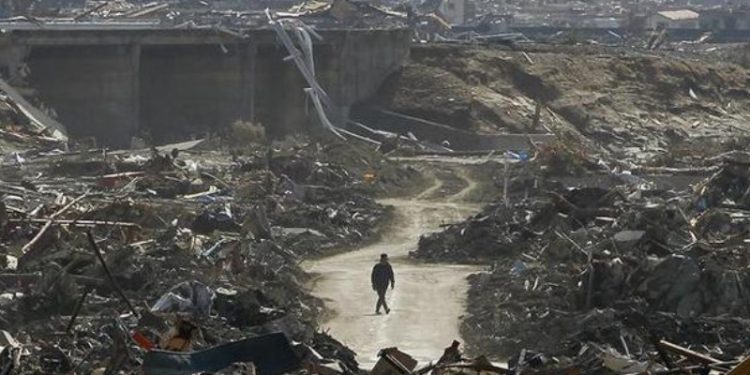According to data announced by the Health, Labor and Welfare Ministry and the National Police Agency on Friday (Feb 5), over the nearly 10 years since the Great East Japan Earthquake, the number of suicides thought to be connected with the disaster reached 240.
At least, 118 disaster-related suicides since March 2011, and Fukushima Prefecture accounted for almost half.
The government has been compiling the statistics since June 2011, defining “quake-related” suicides as those occurring at evacuation sites and temporary housing facilities set up after the disaster; those that mentioned the disaster in a suicide note or other such testament left behind; and those who subsequently took their own lives after their homes or workplaces were heavily damaged during the quake.
As information, by the end of 2020, there had been 240 such suicides (159 men, 81 women).
Besides those in Fukushima Prefecture, there were 58 suicides in Miyagi Prefecture and 54 in Iwate Prefecture.
A total of ten other suicides were reported to have occurred in Tokyo, Ibaraki, and five other prefectures, combined.
By age, 56 of the deceased were in their 50s, constituting the largest demographic in the tally, while 53 were in their 60s.
As many as 55 of the suicides occurred between June and December 2011 alone. From 2012 to 2017, there were more than 20 each year.
The health ministry said suicide in quake-stricken areas remains a serious issue even now.
From 2018 to 2020, there were between five to 16 deaths per year.
Particularly in Fukushima Prefecture, where the accident at Tokyo Electric Power Co. Holdings’ Fukushima No.1 nuclear power plant occurred, there have been a conspicuously large number of suicides since 2012, with over 10 deaths in several years.
According to a mental health and welfare association in Fukushima Prefecture, operators of “Fukukoko Line,” a service providing counseling to disaster victims since 2012, initial consultations tended to gravitate around mental stress arising from the difficulties of leading life as evacuees, but over time, came to include concerns regarding the difficult decision of where to live next.
Masaharu Maeda, a professor at Fukushima Medical University who has been involved in surveying the mental stress experienced by local residents and evacuees, said, “There are also those quake-affected people who have been feeling ever more isolated as they lead their lives away from their hometowns.
“It’s important that we continue making efforts to ascertain the actual state of peoples’ mental health, thus leading to the implementation of effective measures.”



